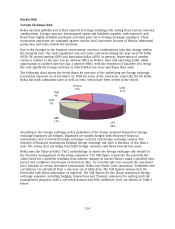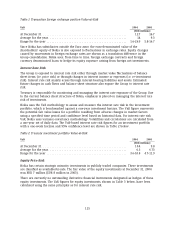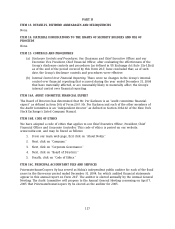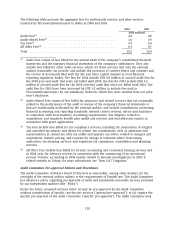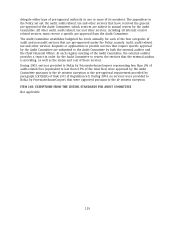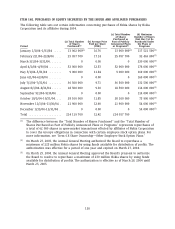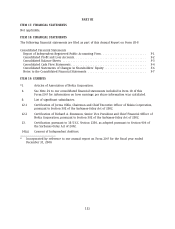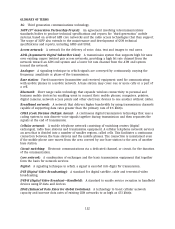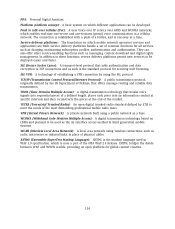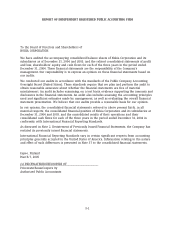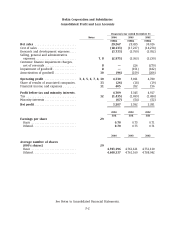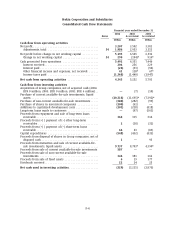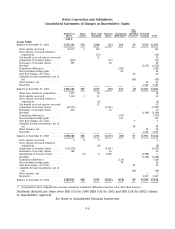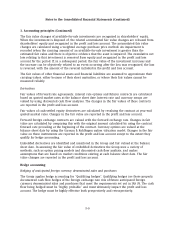Nokia 2004 Annual Report Download - page 124
Download and view the complete annual report
Please find page 124 of the 2004 Nokia annual report below. You can navigate through the pages in the report by either clicking on the pages listed below, or by using the keyword search tool below to find specific information within the annual report.ETSI (European Telecommunications Standards Institute) Standards:
Standards produced by
the ETSI that contain technical specifications laying down the characteristics required for a
telecommunications product.
GPRS (General Packet Radio Services):
A service that provides packet switched data, primarily
for second generation GSM networks.
GSM (Global System for Mobile Communications):
A digital cellular network that operates in
the 900 MHz frequency band, the frequency adopted for use in most European and Asian
countries, as well as the 1800 MHz band.
HSDPA (High Speed Downlink Packet Access):
A wideband code division multiple access
(WCDMA) key feature which provides high data rate transmission in a CDMA downlink to support
multimedia services. HSDPA brings high speed data delivery to 3G terminals, ensuring that users
requiring effective multimedia capabilities benefit from data rates previously unavailable because
of limitations in the radio access network.
IP (Internet Protocol):
A network layer protocol that offers a connectionless Internetwork
service and forms part of the TCP/IP protocol.
IP Network (Internet Protocol Network):
A data communications network based on the
Internet protocol.
IPSec (Internet Protocol Security):
A protocol that provides Internet security architecture for
data confidentiality, data integrity, and data authentication to support secure exchange of packets
at the IP layer.
IPSec VPN:
A technology of establishing a VPN connection by using the IPSec protocol.
LAN (Local Area Network):
A computer network that spans a small area. Most LANs are confined
to a single building or group of buildings. However, one LAN can be connected to other LANs over
any distance via telephone lines and radio waves. A system of LANs connected in this way is
called a wide-area network (WAN).
MMS (Multimedia Messaging Services):
Enables mobile phone users to send and receive
messages with rich content, such as images, polyphonic ring tones, audio clips and even short
videos. MMS is an open standard defined by the Open Mobile Alliance (OMA).
Mobile Phone Engine:
The mobile phone engine is the generic, internal part of a mobile phone.
It does not include the phone cover, key mat or other version-specific mechanical parts, and is free
of customer- or language-specific software.
MSC (Mobile Services Switching Centre):
A mobile network element which performs the
switching functions in its area of operation and controls the interworking with other networks.
OMA (Open Mobile Alliance):
Delivers open standards for the mobile industry, helping to create
interoperable services which work across countries, operators and mobile terminals and are
driven by users’ needs. To expand the mobile market, companies supporting the Open Mobile
Alliance will work to stimulate the fast and wide adoption of a variety of new, enhanced mobile
information, communication and entertainment services. The Open Mobile Alliance includes all key
elements of the wireless value chain, and contributes to the timely and efficient introduction of
services and applications.
Packet:
Part of a message transmitted over a packet switched network.
Packet switching:
A technique that enables digitized data to be chopped up into a number of
packets-sometimes called datagrams-and sent out over various network routes to their location.
123



